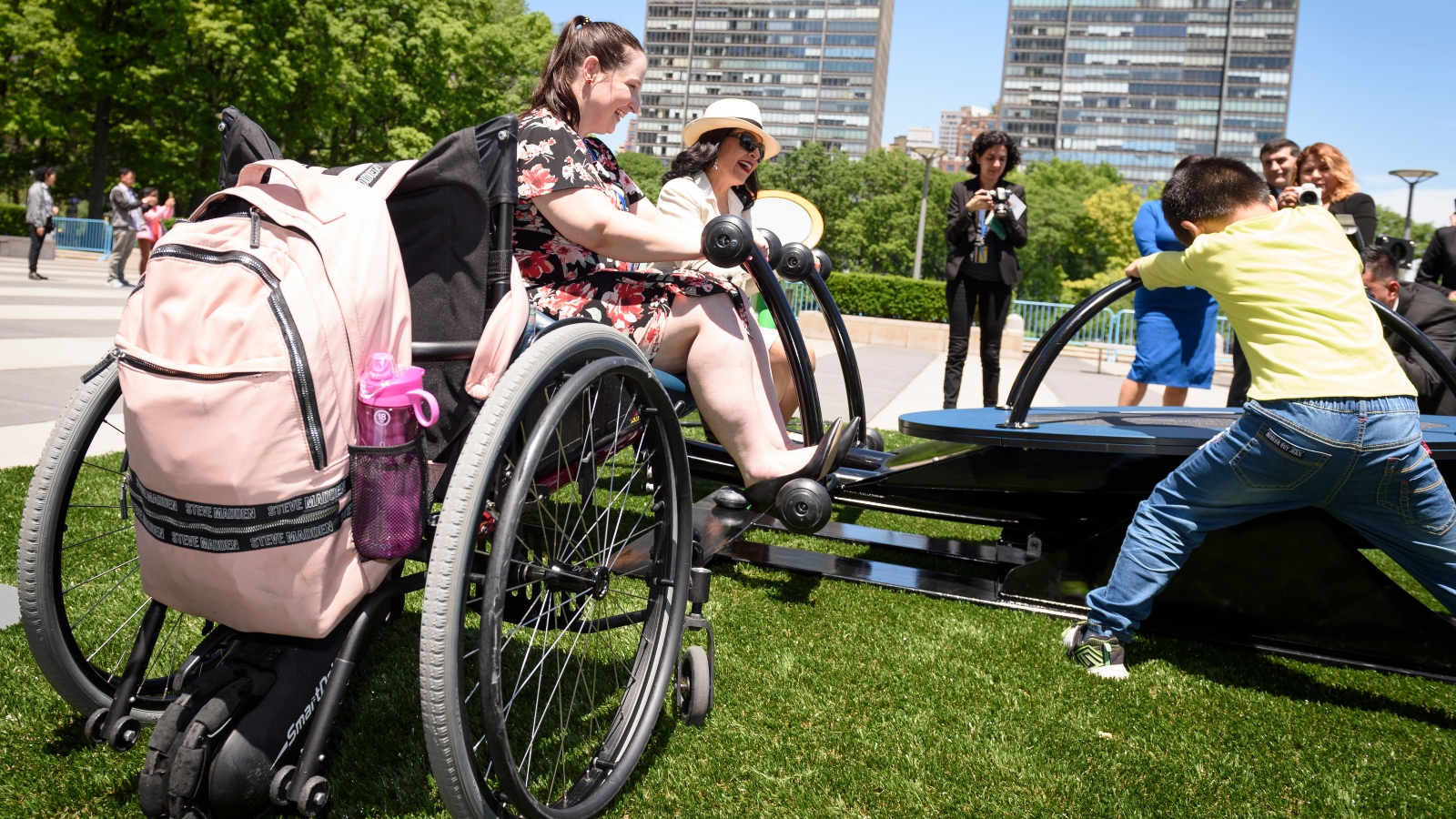
With the devastating impact of COVID-19, cities everywhere are facing key challenges in ensuring that the basic needs of people living in hardship are met. As cities implement actions to strengthen public services in the face of the pandemic, they must also provide equal access to technology, education, livelihoods and services that strengthen the health and well-being of all, with particular focus to the most vulnerable social groups to leave no one behind.
Early this year, the UNDESA's World Social Report reported that even before the impact of the COVID-19 pandemic our world faced historically high levels of inequality. Persons with disabilities are particularly vulnerable to rising inequality and poverty. Of the nearly 1 billion persons with disabilities, an estimated 80% live in cities across developing countries, often in poverty.
Innovation and dialogue can be catalysts for change to ensure that our cities and communities are resilient, particularly in times of crisis like the present COVID-19 pandemic. United Cities for All serves as an annual platform for experts to share their knowledge and identify innovative solutions to the challenges that cities are facing to build back better and offer accessible and usable infrastructure, services, information and more.
In September 2019, during the UN Secretary-General’s SDG Summit, Heads of State agreed on a Political Declaration adopted by the UN General Assembly called for accelerated progress on the SDGs and committed to “Leaving no one behind: we will place a focus on the poorest and most vulnerable in our policies and actions” while “Bolstering local action to accelerate implementation”. The Political Declaration also commits us to “empower and support cities, local authorities and communities in pursuing the 2030 Agenda”.
SDG 11, “Sustainable cities and communities”, aims at enhancing “inclusive and sustainable urbanization and capacity for participatory, integrated and sustainable human settlement planning and management in all countries” (Target 11.3), and calls for the provision of “universal access to safe, inclusive and accessible, green and public spaces, in particular for women and children, older persons and persons with disabilities.” (Target 11.7).
Persons living with disabilities are often the poorest and most vulnerable in cities today. While obstacles exist to achieve the SDGs for persons with disabilities, sub-national governments in cities are enabling this progress. However, scaling up the inclusion of and accessibility of persons with disabilities across cities and communities today is an imperative to leave no one behind. This webinar will examine current trends, responses and lessons to accelerate SDG progress for citizens living with disabilities and make inclusion and empowerment a reality for all.
Ms. Daniela Bas, Director of Division for Inclusive Social Development in the UN Department of Economic and Social Affairs (UNDESA) discussed the ongoing efforts to realize inclusive, accessive, affordable, and sustainable cities in this challenging time. She addressed three points: how COVID-19 impacts cities and communities and widens inequalities with a focus on persons with disabilities; the 2030 Agenda and the Convention on the Rights of Persons with Disabilities (CRPD); and how to build a better post-pandemic world. Ms. Bas highlighted the need for transforming inequalities into a new inclusive care economy that contributes to the foundation for inclusive and accessible cities. We have to make sure the adoption of the 2030 Agenda and invest in future sustainable organizations including adopting and implementing the Convention on the Rights of Persons with Disabilities (CRPD). She also emphasized the necessity of providing affordable services while building better cities in a post-COVID world. We should change our mindset, establish laws and policies that ensure the rights, opportunities, and dignity of persons with disabilities as well as those who live with them. Persons with disabilities and their situations should be positioned at the center of COVID-19 responses and recovery to build back better.
UNDESA's World Social Report: https://www.un.org/development/desa/dspd/world-social-report/2020-2.html
Factsheet on Persons with Disabilities: https://www.un.org/development/desa/disabilities/resources/factsheet-on-persons-with-disabilities.html
SDG 11: https://sdgs.un.org/goals/goal11
Sources: UNDESA and UNOSD
 Welcome to the United Nations
Welcome to the United Nations